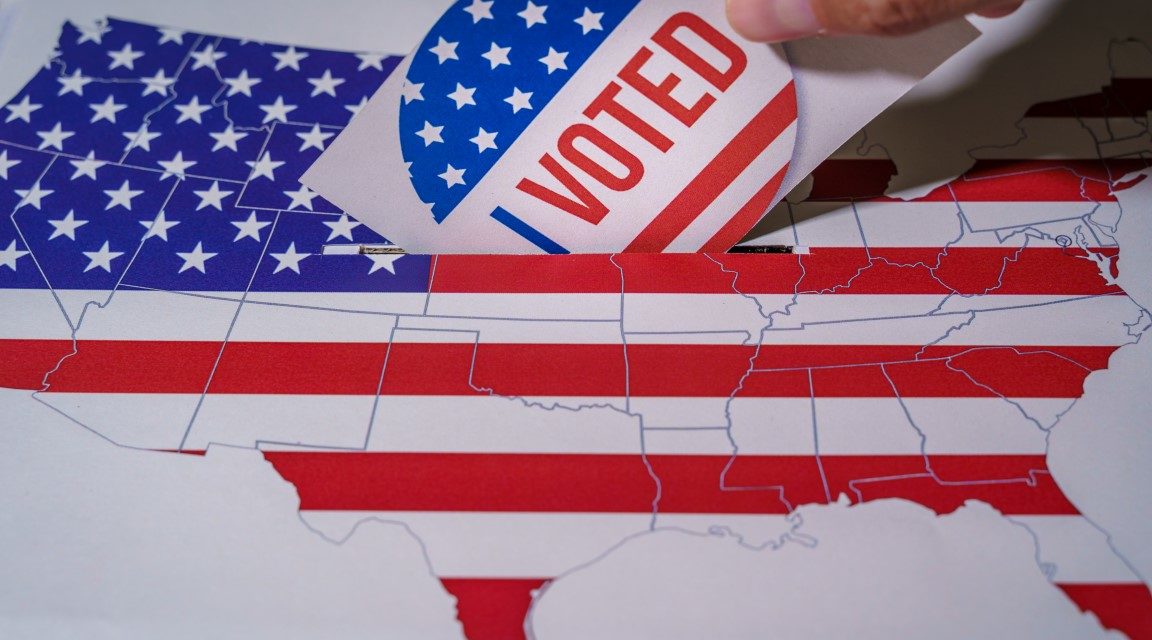Since becoming a U.S. citizen, I’ve never missed voting in a federal election. I see voting as a responsibility to the country that took me and my family in when we were down. It is my American duty. I also see it as a privilege, especially when I think of my birth country of Iran, where my compatriots literally risk their lives to vote and actually get murdered by the thousands when they dispute the results of their rigged elections.
For new Americans, elections can be intimidating. I remember the first time I voted. I had done my research and felt informed, but I also felt insecure. I wasn’t sure if I was American enough. I didn’t know if I would invite stares or second looks. I didn’t want to make a mistake in how I completed my ballot. It truly felt like the first day of school.
Of course most of my apprehensions were unfounded and they melted away as soon as I arrived at my polling place. It was inviting and beautifully adorned with multiple U.S. flags. Voters were orderly, and poll workers were kind. It was a serene experience, and on that day, for the first time, I felt American.
As immigration attorneys, we assist in birthing new Americans, much like a midwife does with babies. During elections, I always think about our clients, these new Americans who hopefully would vote for the first time and affirmatively participate in this most basic yet sacred component of the American experiment. I wonder if they’d be nervous or apprehensive about voting, as I was. If their hearts beat just a little faster when they cast their ballots, as mine did. Or if they feel intimidated by other Americans who perhaps look or dress differently than they do.
This year, I pray that Americans of all backgrounds embrace voting in record numbers. It’s our obligation to ensure the idea of America survives, not only for future generations, but also for all the people who came before us, many of whom gave their lives, all for the freedoms that we enjoy today and too often take for granted. The right to free and fair elections is one of those freedoms.
During the past several months, I’ve encouraged anyone I’ve encountered to register and vote if they’re eligible. My entire family, most of whom are either immigrants or first-generation Americans, are registered to vote. I’ve also reached out to many of our clients who’ve become U.S. citizens since 2016, and have urged them to vote and have reminded them of the responsibility that they now have and the weight of this obligation in 2020.
We are at a fork in the road and will be choosing between two very different Americas, one of whom has a history of anti-immigrant and restrictionist policies and rhetoric. With the pandemic in full swing, a sitting president laying the foundation for possibly disputing the outcome of the election should he lose, a citizenry frustrated by months of lockdowns, social distancing, and economic insecurity, bombarded by conflicting messages about the virus, the voting process, and the credibility of the media itself, we are in uncharted territory. Nerves are rightfully raw and the stakes are high.
Regardless of who wins on November 3rd, we now live in a tribal and divided country. Decades of cheap partisan attacks have torn into the very fabric of our existence as Americans. For immigrants, sometimes it is easier to see the carnage of tribalism because in many cases, that’s why they fled their old countries. They know it, they feel it, and they can smell it. It is their PTSD. That’s why after the murder of George Floyd and the subsequent nationwide demonstrations, my 98-year-old immigrant father registered to vote and is set to become a first-time voter. He told me he is voting because what he is witnessing on TV cannot have a good ending. He said he is voting for America itself.







